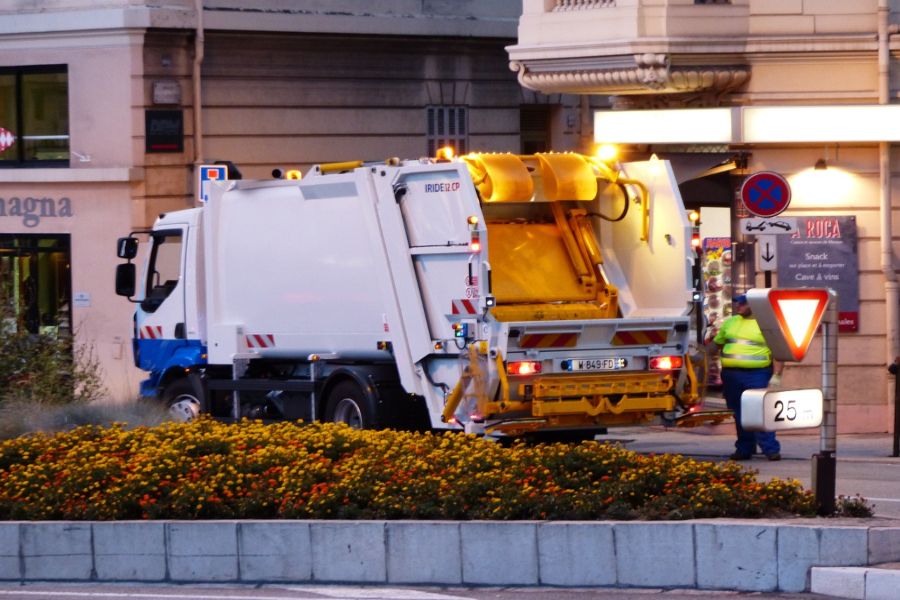The sight of a leaking garbage disposal can be a source of frustration for homeowners. Not only does it lead to messy and unsanitary conditions, but it can also cause damage to your kitchen and plumbing system if left unchecked. Understanding why your garbage disposal is leaking is the first step towards resolving this issue. In this comprehensive article, we will explore the common causes of garbage disposal leaks, how to detect them, and essential preventive measures. Whether you’re a seasoned DIY enthusiast or in need of professional guidance, this guide will equip you with the knowledge to address this common household problem effectively and maintain a leak-free kitchen.
Why Is My Garbage Disposal Leaking?
Your garbage disposal may be leaking due to loose connections, worn-out gaskets, a cracked disposal unit, or damaged seals. Signs of leaks include visible water pooling, unusual sounds, or dampness around the unit. Regular maintenance, proper usage, and avoiding overloading can help prevent leaks. Depending on the severity, you may need to tighten connections, replace gaskets or seals, or seek professional help for more significant issues.
Common Causes Of Garbage Disposal Leaks
- Loose Connections: One of the primary reasons for a leaking garbage disposal is loose connections. Over time, the various plumbing connections that link your disposal unit to the drainpipes or dishwasher can become loose. Water can seep through these gaps and cause leaks. To address this issue, you’ll need to tighten these connections securely using the appropriate tools and materials.
- Worn-out Gaskets: Gaskets play a crucial role in preventing leaks by forming a watertight seal between different parts of the disposal unit. When these gaskets become worn out or deteriorate, they can no longer maintain a tight seal, leading to leaks. Identifying signs of gasket wear, such as water escaping from seams, is essential. Replacing the damaged gaskets with new ones can resolve this issue.
- Cracked or Damaged Disposal Unit: Cracks in the disposal unit itself can be a significant source of leaks. These cracks can occur due to various factors, including wear and tear or improper use of the disposal. Inspecting the unit thoroughly for any visible damage, such as cracks or fractures, is essential. If you discover any, you may need to consider replacing the disposal unit to eliminate the leaks.
- Faulty Seals: Seals are another critical component that helps maintain a watertight barrier in your garbage disposal. When these seals are damaged or compromised, water can escape, leading to leaks. Signs of seal damage may include water dripping from the bottom of the disposal unit. Replacing these seals, often located in the disposal’s motor housing, can help resolve the issue and prevent further leaks.
Tips On Safely Turning Off And Inspecting The Disposal
Turn off the power: Before doing anything, ensure the disposal is completely powered off. Locate the disposal’s switch or circuit breaker and turn it off to prevent accidental activation.
1. Disconnect power source: For an extra layer of safety, unplug the disposal from the electrical outlet if possible.
2. Use a flashlight: Shine a flashlight into the disposal to get a clear view of the interior and identify any visible issues or foreign objects.
3. Avoid putting your hand inside: Never insert your hand or any tools into the disposal while inspecting it, even when it’s turned off. Use a long-handled tool or a mirror to inspect safely.
4. Look for foreign objects: Check for any foreign objects, debris, or food particles that might be causing a blockage or damage. Remove them using tongs or pliers.
5. Check for water leaks: Inspect the disposal unit and surrounding pipes for signs of water leaks. Look for water droplets, moisture, or pooled water.
6. Tighten connections: If you suspect loose connections, gently tighten them using the appropriate tools, such as a wrench or pliers. Avoid over-tightening to prevent damage.
7. Listen for unusual sounds: Turn the disposal on briefly (if safe to do so) and listen for any unusual noises, which can help pinpoint the issue.
8. Inspect the gaskets and seals: Check the gaskets and seals for visible signs of wear, cracks, or damage. If you notice any issues, they may need to be replaced.
9. Follow manufacturer’s instructions: Always consult the manufacturer’s manual for your specific disposal unit for any additional safety guidelines or troubleshooting steps.
How To Preventing Garbage Disposal Leaks?
Preventing garbage disposal leaks involves regular maintenance and adopting proper usage habits. Here’s how to prevent leaks:
Regular maintenance:
Run cold water while using the disposal to help flush away food particles.
Periodically grind ice cubes and citrus peels to clean the blades and freshen the unit.
Check for leaks, loose connections, and wear during routine inspections.
Tighten any loose connections promptly to prevent leaks.
Proper usage and disposal:
Avoid putting hard or fibrous materials like bones, fruit pits, and corn husks into the disposal. Do not dispose of grease, oil, or fats, as they can solidify and clog the drain.
Minimize the use of starchy foods like rice and pasta, which can swell and lead to clogs.
Use cold water, as it helps solidify grease for easier disposal.
Never overload the disposal with excessive amounts of food waste.
Regular cleaning:
Clean the rubber splash guard regularly to prevent the buildup of debris and odors.
Keep the area around the disposal clean and dry to avoid moisture-related issues.
Avoid overloading:
Dispose of food waste in smaller batches to prevent overloading the unit.
Allow the disposal to process the waste completely before adding more. By following these preventive measures, you can maintain your garbage disposal in good working condition and reduce the risk of leaks and other common issues.
When To Seek Professional Assistance?
Knowing when to seek professional assistance for your garbage disposal issues is essential to prevent further damage and ensure safety. Here are some situations in which you should contact a professional plumber or technician:
- Persistent leaks: If you’ve identified a leak, especially if it’s a significant or recurring problem, it’s best to consult a professional. They can accurately diagnose the issue and provide the necessary repairs or replacements.
- Electrical problems: If you suspect electrical issues with your garbage disposal, such as frequent tripping of circuit breakers or unusual electrical odors, do not attempt to repair it yourself. Contact an electrician or a professional appliance technician.
- Unusual noises: Grinding, clunking, or unusual noises coming from the disposal may indicate a serious problem with the motor or components. Professionals can assess and repair these issues safely.
- Jams and blockages: If your disposal frequently gets jammed or clogged, or if you’ve attempted DIY solutions without success, a professional can inspect and resolve the problem without causing further damage.
- Foul odors: Persistent foul odors from the disposal may indicate a buildup of food debris or other issues within the unit. A technician can clean and deodorize the disposal properly.
- Slow drainage: If the disposal drains slowly or not at all, it could be a sign of a blockage in the drainpipe or a problem with the disposal unit. A professional can identify and address the cause of the slow drainage.
- Old or damaged disposal unit: If your garbage disposal is old or severely damaged, it may be more cost-effective to replace it rather than attempting extensive repairs. A professional can advise you on the best course of action.
- Inexperienced or uncomfortable with DIY repairs: If you lack the necessary knowledge, tools, or experience to safely troubleshoot and repair your garbage disposal, it’s safer to call a professional from the start.
- Warranty coverage: If your garbage disposal is still under warranty, attempting DIY repairs may void the warranty. It’s advisable to contact the manufacturer or an authorized service provider for assistance.
Conclusion
In conclusion, addressing a leaking garbage disposal is essential to maintain a clean and functional kitchen. By understanding the common causes, regularly inspecting the unit, and following preventive measures, homeowners can significantly reduce the risk of leaks. When issues do arise, it’s crucial to know when to seek professional assistance to ensure safety and prevent further damage. With proper maintenance and responsible usage, you can enjoy a leak-free garbage disposal that efficiently manages your kitchen waste, contributing to a hassle-free and hygienic culinary environment.
FAQs
1. What Causes Garbage Disposal Leaks?
Common causes include loose connections, worn-out gaskets, cracked units, and damaged seals.
2. How Can I Detect A Garbage Disposal Leak?
Look for visible water, dampness, or unusual sounds around the disposal unit. Inspect for leaks during routine checks.
3. Can I Fix A Garbage Disposal Leak Myself?
It depends on the severity. Minor leaks and loose connections can often be DIY-repaired, but professional help may be needed for major issues.
4. What Should I Avoid Putting In My Garbage Disposal To Prevent Leaks?
Avoid hard items like bones or fruit pits, grease, and fibrous materials like corn husks to prevent clogs and damage.
5. How Often Should I Perform Garbage Disposal Maintenance?
Regular maintenance, including cleaning and inspections, should be done at least every few months to prevent leaks and ensure proper operation.











Leave a Reply